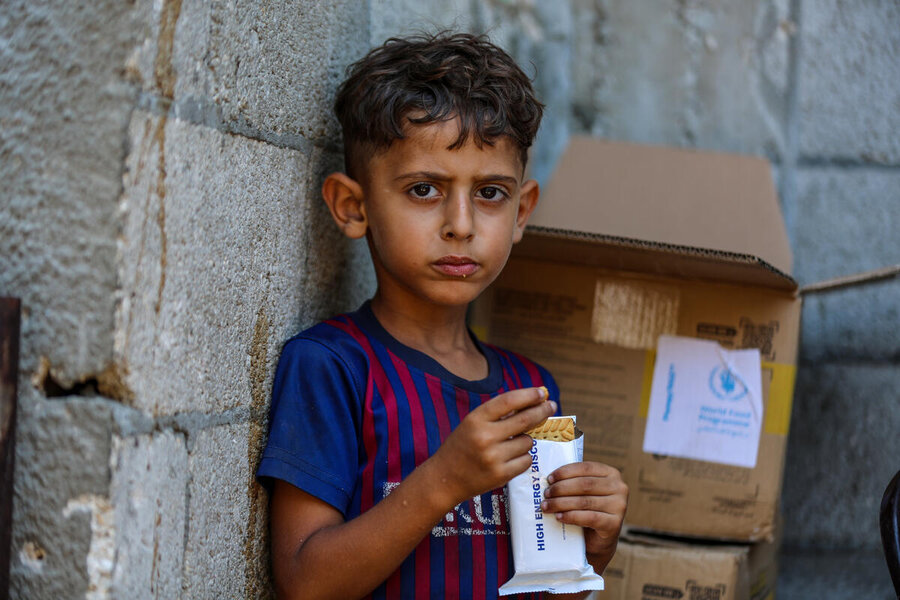Gaza: urgent action needed as hunger soars to critical levels

The ongoing humanitarian crisis in Gaza could soon escalate into famine unless immediate action is taken, the United National World Food Programme (WFP) warns. As winter approaches, the lack of food and other vital humanitarian supplies entering the strip will likely lead to catastrophic consequences.
This dire scenario was buttressed earlier this month by new expert hunger findings (the Integrated Food Security Phase Classification - IPC), projecting that by November, more than 90 percent of Gaza’s population will face severe food insecurity. A large group among them will experience emergency hunger, while others could face “catastrophic” food insecurity — the highest hunger level.
Now, as the situation in northern Gaza continues to deteriorate, the likelihood of a larger group being impacted by famine will surely increase, unless conditions on the ground improve. Restrictions on humanitarian aid coming into Gaza are severe. In October, only 5,000 metric tons of food have been delivered into Gaza - amounting to just one-fifth of basic food assistance for the 1.1 million people who depend on WFP’s lifesaving support.
There are few other food options. Gaza’s food systems have largely collapsed due to the destruction of factories, croplands and shops. Markets are nearly empty, as most commercial channels are no longer functioning.
WFP currently has approximately 94,000 metric tons of food - enough to feed one million people for four months - ready to go into Gaza, with roughly half of it positioned in Ashdod, Egypt, and Jordan.
WFP is also deeply concerned about new legislation passed by the Israeli Knesset. The legislation will likely prevent the UN Relief and Works Agency for Palestine Refugees in the Near East (UNRWA) from continuing its essential work in Gaza and the West Bank. The humanitarian crisis in Gaza requires a comprehensive and coordinated response, with UNRWA serving as a central component.
To effectively roll out meaningful operations and deliver crucial food assistance, the UN food agency is also calling for more secure and functional entry points into Gaza.
Read the full WFP press release here
